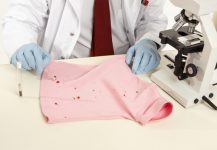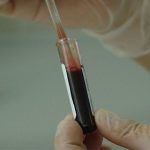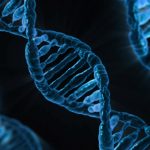Top DNA Analyst Sacked for Allegedly Fabricating Records

DNA evidence has become an increasingly important component of criminal investigations and prosecutions since its use became widespread in the 1990s.
Today, police around the country can access the National Criminal Investigation DNA database, which contains the DNA profiles of hundreds of thousands of individuals. These profiles can be matched with DNA samples taken from crime scenes.
Every individual’s DNA is unique, except in the case of identical siblings. Sections of DNA, called short tandem repeats, are used to create DNA profiles. These DNA sections are non-coding, and therefore do not provide information about a person, beyond creating a genetic profile.
Misleading presentation of DNA evidence
The way DNA evidence is presented inside the courtroom and its ability to influence jurors has attracted a great deal of controversy in recent years.
Submissions such as “there’s a 1 in a billion chance the profile is someone else’s” are inaccurate, misleading and can unfairly sway a jury to convict.
In fact, such a ‘match’ (assuming it is accurate) merely means that if a random person were selected from the population, there would be an extremely slim chance of that person matching the profile in question. It does not mean there is a 1 in a billion chance the profile is someone else’s.
Putting aside the misleading presentation of DNA evidence, the integrity of declared matches has also come under significant criticism in recent years.
DNA matches are not foolproof
Despite how it is represented in courtroom dramas, DNA evidence is hardly foolproof.
DNA profiles have been incorrectly matched in several cases over the years. Samples have been contaminated in the laboratory, and many have been wrongly labelled; which can have disastrous consequences.
Forensic science laboratories are meant to follow strict procedures and protocols in order to guard against the possibility of errors like these occurring. In Australia, the National Association of Testing Authorities (NATA) accredits laboratories by applying international standards.
Even if a laboratory is accredited, problems can still occur if staff don’t follow the correct procedures, or if they go so far as to falsify records.
PathWest is a NATA accredited, state-run pathology centre in Western Australia, which recently discovered the issues that can arise as a result of employee misconduct.
Cutting corners in the laboratory
Until recently, forensic biologist Laurance Webb was Western Australia;’s leading DNA analyst. He’d been working in a senior position at PathWest for fifteen years. His declared DNA matches led to the conviction of dozens of defendants, and he’d often take the stand to testify against defendants during criminal trials.
Mr Webb was terminated from his employment last August, after PathWest carried out an internal investigation into his practices and found he had breached the WA Health Code of Conduct by “not demonstrating ethical behaviour.”
Mr Webb is accused of providing police with evidence that had not been peer-reviewed, failing to conduct quality control testing of DNA evidence, and fabricating records in which he claimed these tests had been carried out.
After dismissing Mr Webb in August 2016, PathWest neglected to notify the Office of the Director of Public Prosecutions (ODPP) of its findings of its until two days before Christmas.
On receiving advice about the conduct, the ODPP carried out its own review and found that Mr Webb had been involved in analysing DNA samples for 27 cases between 2008 and 2014. The revelations have cast doubt on the outcomes of these cases.
An unprecedented criminal justice disaster
Western Australia’s newly-appointed attorney-general, John Quigley, public announced the debacle at the end of March.
He told reporters that the termination and the breaches were “unprecedented in Western Australia’s criminal justice history”. He also questioned PathWest’s delay in notifying the ODPP.
The attorney-general said the ODPP had notified all the convicted persons and their lawyers of the breaches, along with all of Perth’s criminal law bodies. This was despite PathWest threatening to take legal action if they did so.
“No information has been provided to the ODDP which suggests that there was any irregularity associated with PathWest results in any matter,” Acting Director of Public Prosecutions Amanda Forrester wrote in a statement. However, she added there might be information the ODPP is unaware of.
According to Mr Quigley, those who were been convicted of a crime that involved DNA tests carried out by Mr Webb may be able to appeal their convictions. However, he did not say how many cases might be affected.
Lawyers around the state have expressed concerns over a system that allows for breaches with such potentially disastrous consequences. They’ve pointed out that Mr Webb was dealing with the samples for some of the most high-profile murder cases in the state, and yet had no supervision.
Lawyers are also calling for the affected cases to be independently assessed – a process that could take years. It is expected that many lawyers will reopen their old case files to determine whether there are grounds for appeal.
High-profile cases involving the scientist
Following the revelations, the former lawyer of convicted murderer Cameron Mansell suggested there could be grounds for an appeal in that case, as Mr Webb gave evidence during the trial. The verdict in Mansell’s case relied on a mix of DNA and circumstantial evidence.
Mansell was given a life sentence in 2011 for murdering millionaire businessman Craig Puddy in a violent incident at the deceased’s Mount Pleasant home in south Perth. However, Mansell has always protested his innocence, stating that three other men bashed Mr Puddy and took him away.
Mr Webb was also involved in the unsuccessful prosecution of Lloyd Rayney, who stood trial over the murder of his wife Corryn Rayney. DNA found on a cigarette butt close to the Rayney house was found to match that of a known sex offender.
Mr Rayney was acquitted of murder in 2012. He’s currently suing the state of WA for defamation after it was publicly announced he was the prime, and only, suspect in the case.
Too little too late
PathWest issued a statement defending the accuracy of the declared matches in question.
The statement said that “no incorrect results were ever communicated to the police or the ODPP.” PathWest claimed that if errors had been detected, they would have contacted “the relevant authorities, including the ODPP.”
However many are sceptical of the company’s claims, pointing out it could be liable for millions of dollars in damages if it were found that the conduct of its employee resulted in people being wrongly convicted and sent to prison.
Mr Webb took extended leave on 13 January 2015, when the investigation into his work commenced. He never returned, and was officially dismissed on 9 August last year.








